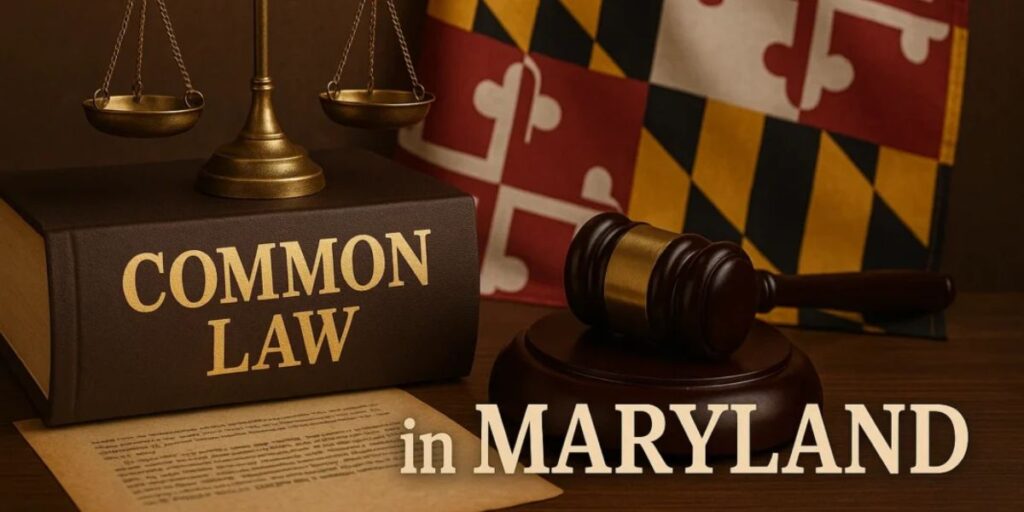Many couples believe that living together for a certain number of years can make them “married by common law.” While this is true in some states, Maryland does not allow couples to establish a common law marriage within the state.
However, there are some important legal exceptions worth knowing—especially for couples who may have moved from states that do allow it.
This guide breaks down Maryland’s legal position on common law marriage, how out-of-state marriages are treated, and what unmarried couples can do to protect their rights.
Is Common Law Marriage Legal in Maryland?
No. Maryland does not recognize common law marriage formed within the state.
This means:
- Simply living together (regardless of how long)
- Sharing finances
- Referring to each other as spouses
- Raising children together
…does not create a legal marriage in Maryland unless you go through the formal legal process, including:
- Obtaining a marriage license, and
- Completing a marriage ceremony with an officiant
Recognition of Common Law Marriages from Other States
Although you can’t form a common law marriage in Maryland, the state does recognize valid common law marriages that were legally established in states where they are permitted—such as Colorado, Texas, or Iowa.
Example:
If you and your partner:
- Lived in Texas, where common law marriage is allowed
- Met that state’s legal requirements (such as mutual agreement to be married and holding yourselves out as spouses)
- Then moved to Maryland
Your marriage would be recognized as legally valid in Maryland under the Full Faith and Credit Clause of the U.S. Constitution.
This recognition can affect:
- Property rights
- Healthcare decisions
- Inheritance
- Divorce proceedings
Legal Protections for Unmarried Couples in Maryland
Even though Maryland doesn’t allow common law marriage, unmarried couples can still take steps to protect their legal and financial rights. These include:
1. Cohabitation Agreement
A private contract between partners that outlines:
- Shared property ownership
- How expenses are divided
- Rights and responsibilities if the relationship ends
2. Power of Attorney & Health Care Directive
These allow your partner to:
- Make medical decisions for you
- Access financial accounts in emergencies
3. Wills and Estate Planning
Unmarried partners do not automatically inherit under Maryland intestacy laws. You must create a:
- Will
- Living trust, or
- Joint ownership structure
…to ensure your partner receives property after your death.
4. Parental Rights
If an unmarried couple has children:
- Both parents must legally establish paternity or parentage
- Custody, visitation, and child support are determined just like with married parents
- Rights and responsibilities are based on the child’s best interests
Final Thoughts
While Maryland does not recognize common law marriage, couples who have formed such unions in other states may still enjoy full legal recognition after moving to Maryland.
For those who have never formalized their marriage, there are still important ways to protect your relationship and your assets.
If you’re living with a partner and want to ensure you both have the legal protections you need, it’s wise to speak with an attorney about cohabitation agreements, estate planning, and parental rights.




More Stories
Common Law Marriage in Maryland: Legal Requirements and Exceptions
Common Law Marriage in Maryland: Legal Requirements and Exceptions
Common Law Marriage in Maryland: Legal Requirements and Exceptions